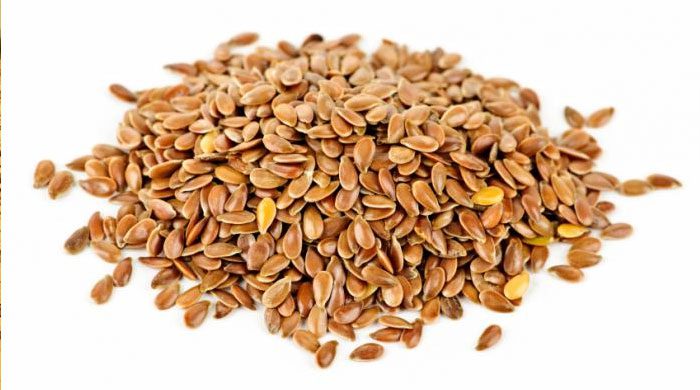Flax Seeds – The Other Omega-3 – Flax Seed Benefits
The Versatile Flax Seeds Are A Nutrient Powerhouse

The flax plant, native to a region extending from Egypt to India, produces a fruit from which the seeds are used. The flax plant is grown to be make cloth and linen, is used as an component in wood finishing products and paper, is used as garden decorations, for its oil, and its flax seeds.
Flax seeds are a nutritional powerhouse. For people who are concerned with carbohydrates, two tablespoons of flax seeds contain only 5 grams which in only 2% of the daily value. Two tablespoons of flax seeds contain 7 grams and 11% of the DV for fats. Do not be alarmed by the word fat. Fat or fatty acids are necessary for healthy living, plus it has 0% cholesterol.
Flax Seeds Fatty Acids and Anti-inflammation
Flax seeds are popular do largely to their high content of fatty acids. Flax seeds have an anti-inflammatory effect on the body because of its high ratio of anti-inflammatory omega-3 fatty acids to its inflammatory omega-6 fatty acids. Inflammation is of high concern now but it is seen as the root of chronic disease. Though most omega-6 fatty acids have an inflammatory effect on the body, omega-6 fatty acids are essential for healthy living, and just need to be in a good ratio to omega-3 fatty acids in the body. A ratio of 3:1 omega-6 to omega-3 seems to be acceptable ratio in most literature.
Two tablespoons of flax seeds contain 3000mg of omega-3 Alpha-linolenic acid (APA), 1000mg of omega-6, and 1000mg of omega-9 fatty acids. The usual recommended amount of omega-3 is 1000mg in the forms of Eicosapentaenoic acid (EPA) or Docosahexaenoic acid (DHA), primarily found in fish. The high number for flax seeds’ Alpha-linolenic acid (APA) level shouldn’t be alarming, because ALA is a precursor to EPA and DHA, and more of it is needed to make EPA and DHA.
The omega-3 in flax seeds have been linked to the reduction of heart disease and cancer.
Ground Flax Seeds Are Best
Flax seeds are a wonderful source of nutrients, but in order for the nutrients to be bio-available to the body, or easily absorbed into the bloodstream, the flax seeds need to be ground. Whole flax seeds pass though the body mostly undigested, while the fatty acids and other nutrients of ground flax seeds are easily digested.
Storing Flax Seeds
Ground flax seeds are easily oxidized and become rancid quickly. Store flax seeds in a refrigerator or in a dark place. Whole flax seeds protect the flax seed oil that is in it from oxidation and stops it from turning rancid quickly.
Flax Seeds Nutrition
Flax seeds are high in fiber. Two tablespoons of flax seeds contain 12% of the DV. Fiber helps regulate the absorption of nutrients in the body and also helps to add bulk to the undigestible waste making its way through the large intestine. This helps to remove the waste material properly without overworking the muscles of the digestive track, and helps to keep you regular.
Flax Seeds are one of the best sources of the very powerful polyphenol antioxidants, and are a higher source of the polyphenols than blueberries and olives.The antioxidant benefits of flax seeds have long been associated with prevention of cardiovascular diseases and have recently also been associated with decreased insulin resistance.
Flax Seeds are a good source of lignans, which help to balance estrogen in women and men, and some evidence supports that lignans may promote fertility, and possibly help prevent breast cancer.
How To Use Flax Seeds
I add flax seeds to my veggie juices, but you can do more with it to get its benefits. Add flax seeds to your salad, cereal, oatmeal, or sandwiches. Add flax seeds when you are making bread or crackers.
Tags: anti-inflammatory, flax seeds, immune system, nutrition, omega-3, omega-6






